- Bernard Preston homepage
- Permaculture
- Why Is Urban Agriculture Important
Why is urban agriculture important?
Why is urban agriculture important is a vital question. It means knowing how most of your food is grown, fertilized and sprayed; and perhaps a nice little income on the side.
Urban agriculture is the way to regain the joy of eating nutritious and tasty food not sprayed with poisons like Paraquat and Roundup.
Whether you have been watching Blue Planet 2, or Al Gore on climate-change you will know that the human race is facing a huge challenge. It's being called ecocide; we are destroying our environment.
Or perhaps you have been personally devastated by a drought or a hurricane; or poor health.
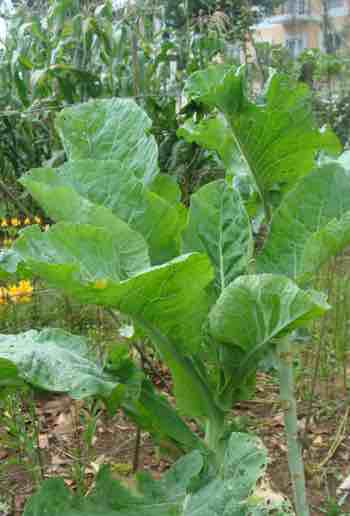
This page was last updated by Bernard Preston on 30th December, 2024.
Either we change our ways or like the dinosaurs we face the real possibility of extinction; the very least is that our grandchildren will be at war with each other on a scale unimaginable over water and food.
Roughly one third of the food grown by farmers is never actually consumed; it's lost somewhere in the chain that stretches from the rural field to our city human lips. Today we are just getting by with that; but with the astronomical population growth, very soon there are going to be serious riots as the prices of our basics spiral out of control.
Part of the solution is urban agriculture; growing your own food, be it in small measure on a balcony or a garden like the one I am privileged to enjoy.
Have you ever read this quote by one of the most influential men in history? It means food for the body and the mind.
"If you have a garden and a library, you have everything you will ever need."
- Marcus Cicero, Roman politician, lawyer and orator
A garden and a good book is what Bernard Preston stands for too.
Water
Urban agriculture is fundamentally dependent on water. If you have just a few herbs and perhaps a potted tomato plant on a balcony, then you can probably rely on the utility. For a large-garden, before planning to grow your own food you may first have to consider how to harvest and store the rain falling on your roof.
Three 5kL water tanks will go a long way to irrigating your plants in the dry season.
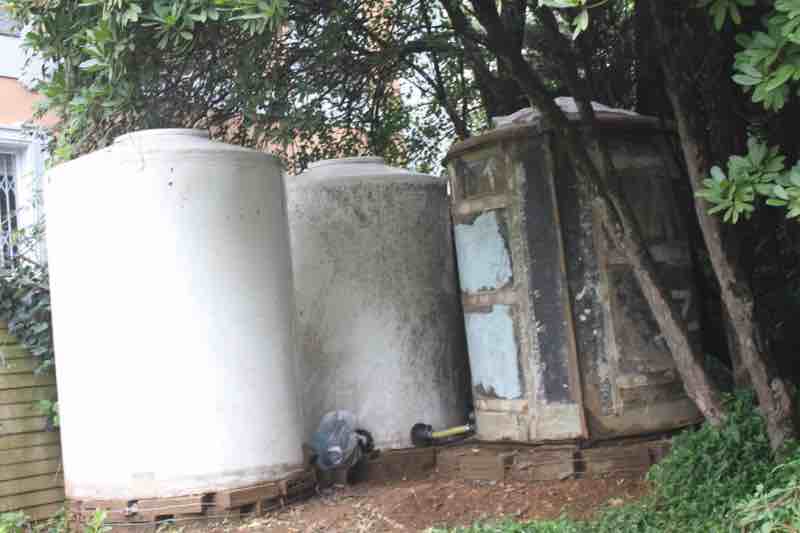
There is a radical line of thought that a large proportion of the water in our dams and rivers should be reserved for agriculture to cope with feeding the population-explosion; and for factories to provide work for the masses.
City dwellers must become in large measure responsible for their own supply; from the heavens and perhaps boreholes. And that should include those involved in urban agriculture. There is much encouragement in that quarter from the local utility; they have just increased the price of water by a massive 50%.
Climate change
So too there is an interesting interplay between agriculture and climate. The more we chop down forests to produce soya beans and palm-oil for food, just to cite two products, the higher atmospheric carbon rises; and with it the greenhouse effect.
That means climate change with the attendant drought and floods which impact on agriculture. It is the circular nature of how our food-choices are having a dramatically noxious influence on the weather.
Exactly how farmers will be able to continue to supply that huge and growing demand is a great concern.
Whilst red meat consumption is set to rise in the short term, perhaps dramatically, impacting further on the greenhouse gases, within a hundred years the vast majority of humans will be getting their protein from legumes like chickpeas and lentils. Far less water is required than animals for food-production, and the plants release no noxious methane or carbon into the atmosphere.
These are all uncomfortable thoughts but they will not go away with the ostrich-mentality. There are things we can do that will make a difference. Action needs to be taken now to preserve civilization; otherwise the mother of all wars will end it in our struggle for food and water.
This underground reservoir was remarkably inexpensive to build; in only two-weeks. Make it 5 metres wide by 2 deep if you are planning on urban agriculture; the estimated cost was about R50,000 in South African terms in 2024.
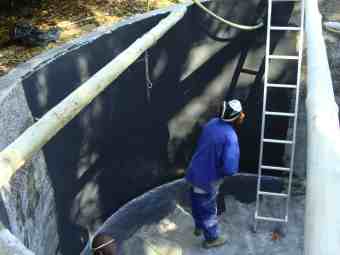
Urban agriculture means you know precisely how most of your food is grown, fertilized and sprayed. Are all around you, friends and family suffering from tumours and an astonishing array of autoimmune diseases as never before? Have you made the connection?
"They who do not live by the truth they acknowledge, thereby become the greatest enemies of truth itself."
- Julius Rupp, 19th Century Lutheran pastor
Why is urban agriculture important?
Why is urban agriculture important? You will regain your love of fresh unprocessed food; the taste alone makes it worthwhile.
Added to the mix is the way agricultural practices have changed to provide food exactly the way we demand it; the potatoes must be all be the same size so the plants have to be sprayed with a herbicide. Wheat and soya beans get the same treatment and the size of a broccoli head must conform to the dictates of Brussels and the housewife.
Traces of these noxious chemicals are in most of our food today.
Cattle must be raised in feedlots, pigs in sties and chickens in cages; their lives have become utterly inhumane, if that is the right word, to satisfy our demand for meat. But it means we have become as sick as our food sources. Do we honestly think that milk from a cow raised on pastures is the same as that kept in a barn 365 days a year?
Healthy tasty bread
You are unlikely to grow your own wheat but one unexpected consequence of urban agriculture is that you begin to expect more from your food; and commercial bread is awful from start to finish with few exceptions.
Perhaps you may want to source the wheat directly from the farmer, mill it and bake wonderful sourdough bread yourself; the way it's been done for millennia.
- The best bread in South Africa for under R10 a loaf.
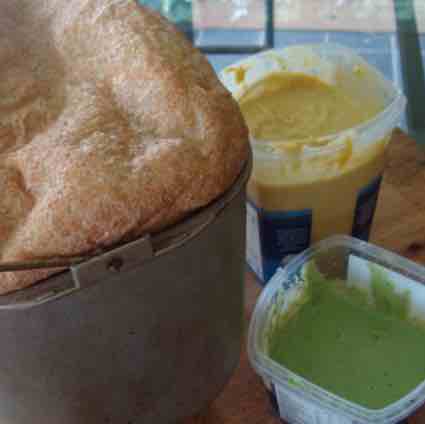
Take a loaf of bread, for example. The genetically modified wheat seed is soaked in Glyphosate and again sprayed just before harvest; an insecticide is added to the grain to stop the weevils. It is then transported to your country where most of the germ and bran are extracted and sold to the pig farmers; or back to you separately as vitamin E capsules, omega fatty acids and the B-complex; if you buy them. The majority simply suffer deficiencies.
Then the baker adds palm oil from Indonesia to the dough, soybean flour from Brazil and sprinkles a few sesame or poppy seeds from who knows where onto the loaf.
Whole grains
It was in fact bread that got me thinking half a century ago as a student in Chicago. Why did it taste so terrible such that we had to smear our slices with jelly and layer them with processed meat?
A lecture from the renowned Dr Shute on how the refining of vitamin E, an anti coagulant, out of bread flour is the principle cause of the cardiovascular epidemic that has characterised the last 150 years, put a scientific basis to what was just an impression. It confirmed this is not fake news; prior to the refining of wheat, heart disease was almost unheard of.
Perhaps even worse, it is the removal of the bran, rich in lignans, that has contributed so strongly to the horrific rise in malignant breast disease.
Although our personal journeys of urban agriculture will have a minuscule effect on the global changes that need to be made, should growing our own food become a worldwide trend, it will have an impact.
For the moment it is just the improvement in one's own wellness, giving the reality of a life without medication substance rather just a pipe dream; and the inner peace that comes with gardening, that drives one on when there are setbacks.
Why is urban agriculture important? It takes away the very real fear of what is being done to our food.
If all over the world we can again discover the joy of real food from our own urban agriculture, reaped straight from the garden to the kitchen, reducing our need for the plastic that is clogging our world, then there is hope for a greener future.
Where do you start?
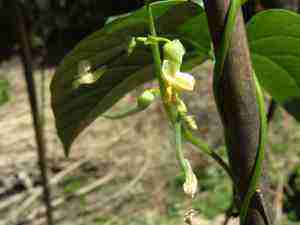
Each of us must make our own green journey; for it to be sustainable, it has to be in answer to the beat that is drumming in your own heart. It is often known as backyard permaculture; working with nature rather than against it.
If it is the call to greater vitality and a horror of what is known as tired all the time syndrome that is summonsing you, start by seeing if you can find a source of real bread as it is being called. None of the germ or bran is removed. We could not and so resorted to grinding the wheat and baking our own.
And then urban agriculture, for you, might mean planting a few rows of vegetables in your garden; spinach, lettuce and green beans would be my recommendation.
Tasteless food
If you are sick of the tasteless food that can only be stomached with flavour enhancers and preservatives, both of which you know are killing you and your family, return to your own kitchen instead of the fast-food outlet.
If you are really tired of taking pills, start exercising, avoid the supermarket as far as possible and spend more time at the greengrocer getting fresh fruit and vegetables grown in your own locale. Drink unsweetened ice tea instead of colas, look for new potatoes and start reading; what is resistant starch[3] for example?
Can you again begin to enjoy carbohydrates that will not make you fat? Find out why we should all be eating at least eight and preferably fifteen coloured foods every day.
In my lunch below there are least seven in one meal; more if you include the trace of parsley in the hummus and the lemon juice in the bean salad. And that is a slice of 100% wholemeal bread. The taste is to die for, only spoiled by smearing it with jellies or slices of cold meats.
One of the joys of urban agriculture is wonderful food again; and it means you can shake off that sugar and salt addiction far more easily. It tastes good naturally.
Why is urban agriculture important? An organic, scrumptious and unprocessed lunch like this is simply not to be had from the grocery store.
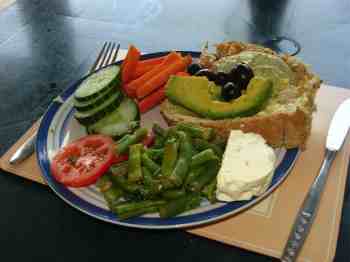 Artisan bread and salads
Artisan bread and saladsIf your passion is to reduce greenhouse gases, look to storing rainwater, digging up the lawn and start growing your own food
on a much larger scale. Urban agriculture is an incredibly broad topic; dive in where you feel led.
I can promise you one thing to weigh, one cost to consider and that is that all this takes time; could you halve the attention you give to those having fun on television and start enjoying your own life more instead? For one immediate benefit, you can cancel your gym contract and get your exercise by turning the sod, humping compost about the backyard and digging a hole for a lemon tree; I promise you it is a lot more pleasurable than a treadmill. I am lucky not to have a gardener.
Our meals needs to be local as far as is possible; visit the farmers' market around the corner, eat what is in season and get inspired to grow your own food. We have started selling our excess garden produce, honey and 100% freshly milled flour at Reko Hilton.
Natural honey
Honey is in crisis today; it is extremely difficult to find natural honey that has not been processed and adulterated.
It's interesting that honey harvested from bees living in the urban jungle has far less pesticides than that from farm lands; and that from a small beekeeper who does not process it, has a low glycemic index. It doesn't raise your blood glucose.
How to start beekeeping has grown in leaps in bounds, not just for the honey but for the relaxation and the sense of a return to nature that it provides.
Enjoy the ride; urban agriculture has been one helluva journey for me. Not for a moment would I step inside a fast food restaurant again; not after tasting the produce from my own garden.
Our natural honey is the biggest money spinner in our garden. Why is urban agriculture important? Find your niche and you will soon have a fistful of dollars.
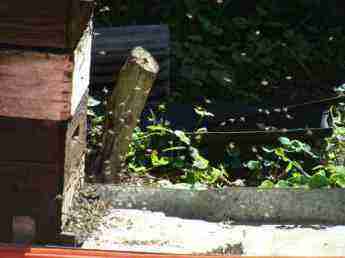
Potatoes
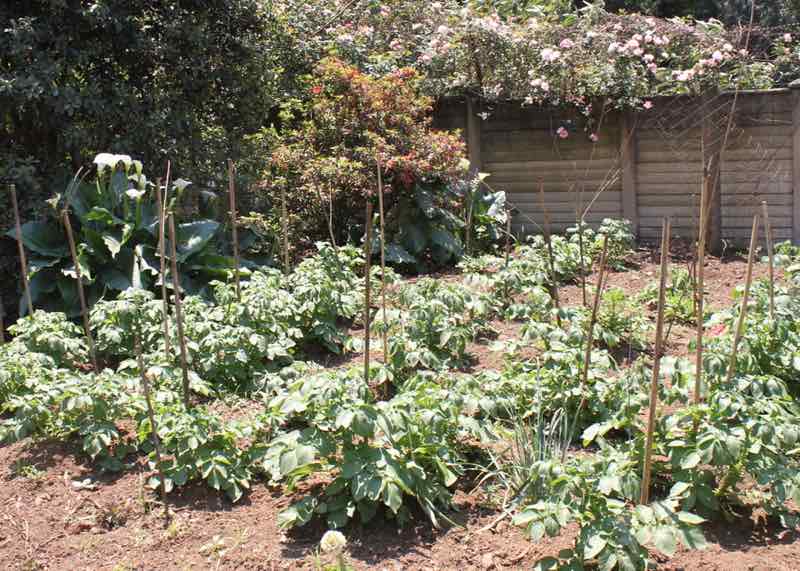
Nowhere is the nutrition of a food more starkly seen than with spuds. Freshly lifted new potatoes are rich in "resistant starch;" they are not fattening. But within three days of harvesting they become very glycemic and will contribute to insulin resistance and diabetes.
New potatoes are quite different to those from cold storage; they are a very rich source of many important minerals like magnesium and potassium that most of us are short of. One consequence is high blood pressure.
Why is urban agriculture important? For me personally it's meant a drop in blood pressure reaching above 180 ten years ago to a systolic reading of 123 at the last visit to the doctor; not bad for someone midway through his 77th orbit of the sun. We take no chronic medication whatsoever.
Why is urban agriculture important? What a silly question!
We are currently harvesting an expected one tonne of top quality new potatoes from our suburban garden. Price that at your grocery store.
Gardens and books
Cicero was consumed with the garden and books; we should be too. If you have neither you are leading a deprived life.
In the Netherlands, Wageningen University and Research looks at value creation cooperation[1]. There is plenty of space for the entrepreneur.
Why is urban agriculture important? Better health, what the Japenese call "ikigai" and money jingling in our pockets has been our experience[2].
When browsing use right click and "Open Link in New Tab" or you may get a bad gateway signal.
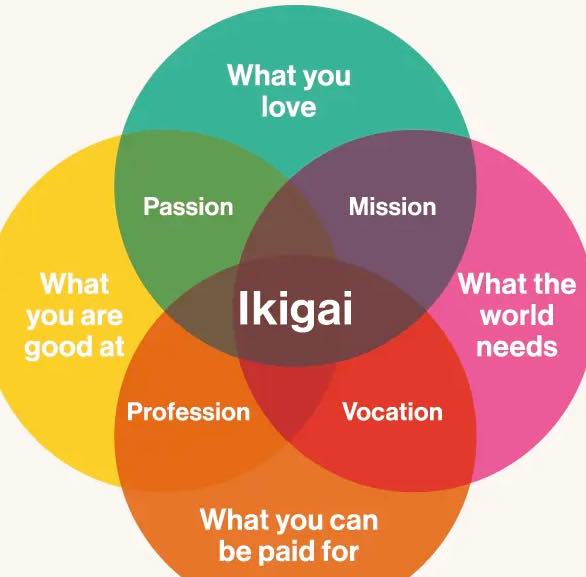
If you read just one-book a month you will probably fall short of a thousand in your whole life; and most likely nearer 500. Enjoying a good yarn is like having a private conversation with the author.
If you are benefiting from these pages then perhaps I can invite you to a journey through the polders of Holland. That is how you can support this site and enrich your own life with some easy bedside reading; step up to greater well-being.
My books are available from Amazon on Kindle.
Newsletter
Our newsletter is entitled "create a cyan zone" at your home, preserving both yourself and Mother Earth for future generations; and the family too, of course. We promise not to spam you with daily emails promoting various products. You may get an occasional nudge to buy one of my books.
Here are the back issues.
- Lifestyle and ideal body weight
- What are ultra-processed foods?
- Investing in long-term health
- Diseases from plastic exposure
- Intensive lifestyle management for obesity has limited value
- A world largely devoid of Parkinson's Disease
- The impact of friendly bacteria in the tum on the prevention of cancer
- There's a hole in the bucket
- Everyone is talking about weight loss drugs
- Pull the sweet tooth
- If you suffer from heartburn plant a susu
- Refined maize meal and stunting
- Should agriculture and industry get priority for water and electricity?
- Nature is calling
- Mill your own flour
- Bake your own sourdough bread
- Microplastics from our water
- Alternative types of water storage
- Wear your clothes out
- Comfort foods
- Create a bee-friendly environment
- Go to bed slightly hungry
- Keep bees
- Blue zone folk are religious
- Reduce plastic waste
- Family is important
- What can go in compost?
- Grow broad beans for longevity
- Harvest and store sunshine
- Blue zone exercise
- Harvest and store your rainwater
- Create a cyan zone at your home
Did you find this page interesting? How about forwarding it to a friendly book or food junkie? Better still, a social media tick would help.
- Bernard Preston homepage
- Permaculture
- Why Is Urban Agriculture Important
Address:
56 Groenekloof Rd,
Hilton, KZN
South Africa
Website:
https://www.bernard-preston.com